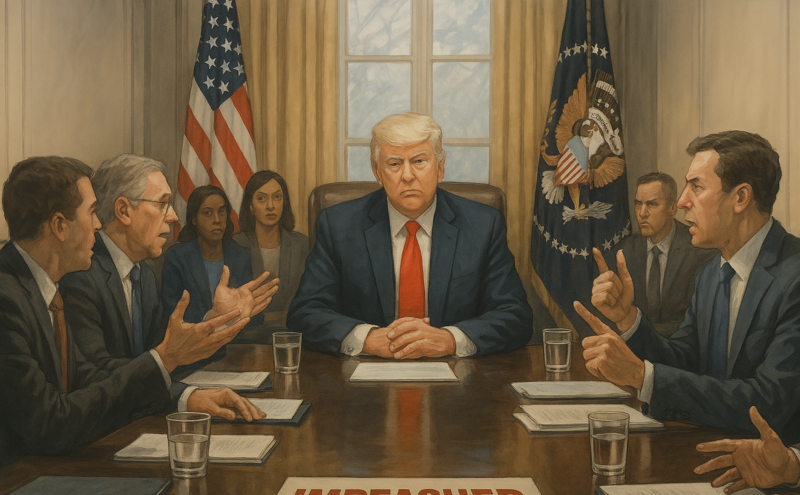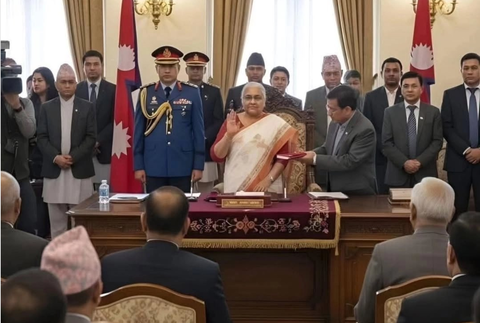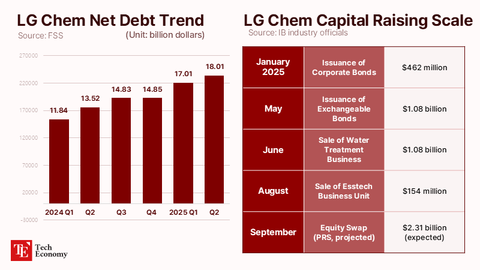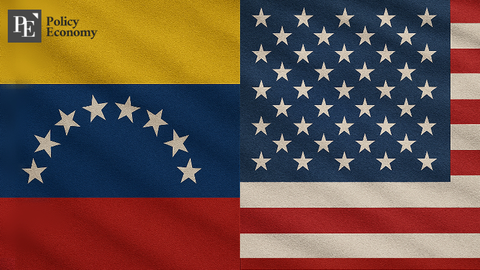Trump’s 100% Tariff on Foreign Films Alarms Hollywood and Prompts Global Concerns
Input
Modified
President Trump’s 100% tariff on all foreign-made films sends shockwaves through the global entertainment industry Critics warn policy could trigger trade retaliationand limit creative freedom for American filmmakers. Hollywood faces an uncertain future shaped by rising protectionism.

In a move that has stunned the global film industry, President Donald Trump announced a sweeping 100% tariff on all foreign-made films distributed in the United States. Framed as a patriotic effort to restore American dominance in the movie business, the announcement has raised a wave of concern, confusion, and criticism—from Hollywood studios to international trade analysts.
A Global Industry Faces a Domestic Wall"
At first glance, the policy seemed to be aimed at foreign films that enter U.S. theaters or streaming platforms from abroad. But deeper scrutiny revealed something far more disruptive. The tariff, as outlined by administration officials in follow-up statements, applies not just to foreign-language films or international independent cinema but to any movie physically produced outside the U.S.—even if backed by American studios and featuring American actors.
That means a Hollywood blockbuster shot in the UK, a romantic comedy filmed in Paris, or an action movie filmed on location in South Korea could now be subject to this aggressive new trade policy. Even Netflix originals or Amazon productions shot in Canada—previously a popular and cost-efficient option for American producers—would now incur steep financial penalties if distributed in the U.S.
The implications are vast, and the backlash was immediate. From industry insiders to cultural critics, many are left asking: is this really about protecting American workers, or is it yet another expression of the administration’s increasingly isolationist worldview? And perhaps more urgently, could this decision spark an entertainment trade war that cripples Hollywood’s international influence?
At the heart of the issue is Trump's claim that American film jobs are being siphoned away by what he calls "unfair subsidies" offered by foreign governments. Countries like Canada, the UK, and New Zealand have long used tax breaks, grants, and production incentives to lure major film projects to their shores. This has undeniably created a thriving global industry around American-made content, but Trump insists it’s at the expense of domestic jobs in cities like Los Angeles, Atlanta, and Albuquerque.
During a speech at a media roundtable last week, Trump declared, “We’re going to bring Hollywood home. We will no longer allow foreign countries to take our films, our jobs, and our creative industries away from hardworking Americans. If they want to make American movies, they need to make them in America.”
While the message resonated with some union members and location crews who have seen production jobs vanish from U.S. soil, industry analysts argue that the global nature of filmmaking today makes such a stance both economically and logistically unfeasible. Production often moves abroad for artistic and technical reasons: a director may want to capture the streets of Rome or the jungles of Southeast Asia not as a political statement, but to serve the story.
Retaliation, Repercussions, and Rising Costs
Moreover, the movie industry is fundamentally a global business. American studios don’t just export films—they create them with international markets in mind. Foreign box office receipts now account for more than half of total revenues for many major releases. The fear within Hollywood is that retaliatory tariffs from foreign governments could shut American films out of international markets entirely.
A major studio executive, speaking under the condition of anonymity, warned, “If France, South Korea, or India imposes tariffs on our films in response, we’re in real trouble. This isn’t about protecting U.S. cinema—it’s about limiting it.”
Streaming giants face an equally thorny path. Netflix, for instance, has aggressively invested in global production hubs in Spain, South Korea, and Germany to feed its growing international subscriber base. Under the new rules, content produced in those countries but distributed on the U.S. platform could now be taxed at double its production cost.
That cost burden could either fall on the streaming platforms—hurting their profitability—or be passed down to consumers in the form of higher subscription fees. Worse still, it could result in platforms scaling back their investments in international storytelling altogether, narrowing the diversity of voices and stories available to American audiences.

Culture, Creativity, and Constitutional Questions
Cultural advocates and filmmakers have spoken out against the move, arguing it threatens the very fabric of creative exchange that has made cinema a universal language. They warn that walls built around culture rarely hold up and often breed resentment and stagnation.
Even within Trump’s traditional base of support, the decision has raised eyebrows. While some see it as a strong stand for American jobs, others worry about overreach. “I’m all for putting America first,” said a veteran sound engineer based in Burbank, “but you can’t force creativity to stay in one place. Sometimes the story takes you somewhere else.”
The political reaction has been similarly mixed. Some Republican lawmakers have remained silent or expressed quiet support, saying the move aligns with broader protectionist policies on trade and manufacturing. However, others, particularly those representing states with large entertainment economies like California and Georgia, are pushing back.
In California, the governor has already called for a legal review of the federal government's ability to tax private creative content in this way, arguing that the policy amounts to government interference in free expression and commerce. Legal scholars have also raised constitutional questions, noting that film production is not a physical good like steel or soybeans, and may fall into a gray area when it comes to tariffs.
On the international stage, early signs of diplomatic strain are already appearing. Foreign ministries in several allied nations have issued carefully worded statements expressing “concern” and calling for “consultation.” Privately, industry insiders say trade retaliation is all but inevitable if the tariff proceeds as described.
But perhaps most intriguing is what this move reveals about Trump’s evolving vision of American cultural power. Rather than embrace the soft power that Hollywood has long represented—a beacon of American influence and values—the new policy reflects a zero-sum mentality. It suggests that for the U.S. to “win,” others must lose, even in art.
This approach not only misunderstands the interconnectedness of global cinema but also risks alienating the very talent and innovation that has sustained America’s cultural leadership for over a century. Directors, producers, and actors who have enjoyed international collaboration may now think twice before signing on to projects abroad.
In an industry where location flexibility, creative freedom, and international reach are fundamental to success, such limitations could cause long-term harm. The ripple effects may not be felt immediately, but insiders say the damage to global relationships and creative partnerships could last years.
For now, studios are in limbo, unsure whether the policy will be enforced through executive order or if Congress will intervene. Some productions have already halted pre-production overseas, and calls to entertainment lawyers and trade consultants are reportedly flooding in.
Meanwhile, audiences—many of whom have grown accustomed to a rich blend of global stories—could find their streaming queues a little less colorful, their theater options a little more homogeneous, and their country’s film culture a little more isolated.
And in a world more connected than ever, the question lingers: can cinema, perhaps the most global art form of all, survive the weight of political walls?





















